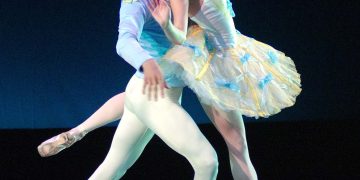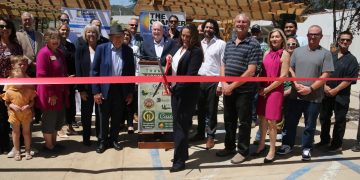
Herbert Frank York, atomic bomb developer and founding chancellor of the University of California, San Diego, died May 19 at Thornton Hospital. He was 87. York became attached to the explosive side of physics early in his career. Despite his contributions to atomic bomb development as a young researcher, he later in life “championed arms control…” and was known as an “ambassador for peace, stability and civility in the international theater,” UCSD media spokesperson Pat JaCoby reported. As a young graduate student in 1943, York was recruited by the University of California Radiation Laboratory (UCRL) at Berkeley. He worked on the Manhattan Project, developing the first atomic bomb—which the Allied Forces eventually used against Japan, effectively ending World War II. “Not only did we complete the project,” York reportedly wrote in a memoir, “but we ended the war.” After World War II, York earned a Ph.D. in physics at the University of California, Berkeley, eventually joining the school’s physics department as an assistant professor. York directed the UC Lawrence Livermore Laboratory from July of 1952 to March of 1958 and continued to advise American presidents regarding the future of nuclear laboratories. While York worked at Livermore, he researched classified programs under the government’s Atomic Energy Commission, programs such as hydrogen bomb development. York became the first chief scientist of the Advanced Research Projects Agency of the Office of the Secretary of Defense in the Pentagon, Washington, D.C. President Eisenhower named York the first director of defense research and engineering, where he served as civilian supervisor of missile and space research. According to a UCSD news release, York said his experiences during the 1950s created strong beliefs in arms control and nuclear test bans as a way to stop wars, though his colleagues disagreed. “I was the only senior official who thought it was a great idea,” York said. “Others were tolerant of it, but the majority thought it was really dumb.” York was named chancellor of La Jolla’s newly established UC campus in 1961 and served in that capacity through 1964, when he returned to teaching physics, chairing the UCSD physics department and serving as dean of graduate studies from 1969 to 1970. “Herb was not only a leader of UC San Diego, he also was a world leader and had a global impact,” said UCSD Chancellor Mary Anne Fox in a press release. “During his exceptional, longstanding career, he was the ‘first’ in many of the positions he held. Herb York made this campus and this world a better place.” While advising six U.S. presidents on armament and serving on the President’s Science Advisory Committee and the scientific advisory boards of the Army and the Air Force, York was a member of the first General Advisory Committee on Arms Control and Disarmament (1962-69) and the U.S. delegation to Soviet-American Arms Control Talks (1978-79). He was chief negotiator for the comprehensive test ban talks in Geneva (1979-81). York continued to teach physics in the UC system and served as director of the Program in Science, Technology and Public Affairs (1973-88). He founded and directed UUCP’s Institute on Global Conflict and Cooperation, researching conflict resolution and hosting seminars that “promotes international efforts to avoid war,” UCSD reported. “We will forever be grateful for [York’s] leadership and vision,” Fox said. In addition to his daughter Rachel, York is survived by his wife of 61 years, Sybil, and children Cynthia York of Santa Rosa and David Winters of Oakland. He is also survived by four grandchildren.












Discussion about this post